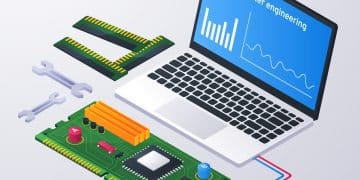Student Laptops in 2025: Premium Models at Affordable Prices

The Growing Importance of Student Laptops in 2025
Evolution of Hybrid and Remote Learning in Indian Education
The educational landscape in India has undergone a significant transformation over the past few years. The COVID-19 pandemic accelerated the adoption of hybrid and remote learning models, making it crucial for students to have access to reliable technology. Although physical classrooms have reopened, many institutions continue to offer online classes and blended learning formats. This shift has made laptops an essential tool for students, enabling them to attend virtual classes, access online resources, and complete assignments from any location.
Why Having the Right Laptop is Crucial for Academic Success in 2025
As we move further into 2025, the significance of having the right laptop cannot be overstated. With coursework becoming more digitally integrated, a good laptop helps improve productivity, ensures seamless access to educational materials, and supports advanced software required for various courses. Whether you’re working on a programming project, designing graphics, or collaborating on group assignments, a dependable laptop is indispensable for meeting academic demands.
Overview of Current Market Trends and Special Student Discounts
Currently, the student laptop market in India is teeming with options across various price segments, catering to different academic needs and budgets. Many manufacturers and retailers offer special discounts and promotions tailored specifically for students. These discounts can significantly lower the cost of laptops, making advanced technology more accessible. Furthermore, educational institutions often have partnerships with tech companies, providing additional perks and savings through student programs.
Navigating the wide array of choices and availing these special deals can make a huge difference in your academic journey.
| Topic | Details | Recommendations |
|---|---|---|
| Laptops for Students | Essential tool for learning. | Important for online classes and assignments. |
| Adoption of Blended Learning | The pandemic accelerated the shift. | Schools continue with online classes. |
| Laptops and Academic Success | Increases productivity and access to materials. | Essential for digital courses. |
| Laptop Market | Many options for different budgets. | Take advantage of student discounts. |
| Entry-Level Laptops (Under ₹30,000) | Basic models for simple tasks. | HP Chromebook 14a, Acer Aspire 3. |
| Entry-Level Laptop Features | Basic processor, 4GB RAM, 128GB SSD. | Battery life of 6 to 8 hours. |
| Mid-Range Laptops (₹30,000 to ₹45,000) | Better performance and more RAM. | Dell Inspiron 3505, HP 15s. |
| Mid-Range Laptop Offers | Seasonal discounts and promotions. | Keep an eye on back-to-school sales. |
| Premium Laptops (Above ₹45,000) | For specialized courses. | MacBook Air, Dell XPS 13. |
| Advantages of Premium Laptops | Durability, advanced features. | Extended support and warranty. |
| Essential Specifications | Powerful processor, 8GB RAM, 256GB SSD. | Choose based on course and tasks. |
| Operating System | Windows is versatile, ChromeOS is basic. | MacOS for design and multimedia. |
| Reliable Brands | Dell, HP, Lenovo, Acer. | Buy from authorized websites. |
| Student Discounts | Programs offer reduced prices. | Dell, HP, Lenovo offer discounts. |
| Cashback and Coupons | Online portals offer discounts. | Look for offers on Flipkart and Amazon. |
Best Budget-Friendly Student Laptops (Under ₹30,000)
Analysis of Entry-Level Laptops Perfect for Basic Academic Tasks
For students working within a tight budget, it’s crucial to find a laptop that’s affordable yet functional enough for everyday academic tasks. Entry-level laptops under ₹30,000 can efficiently handle essential activities like note-taking, web browsing, and streaming educational videos. These devices are typically equipped with basic hardware specifications that offer dependable performance for standard applications like word processing and spreadsheets.
Key Features and Specifications in the Budget Segment
When shopping within this budget segment, here are some key areas to consider:
- Processor: Look for laptops with Intel Celeron, Intel Pentium, or AMD A6 series processors. These processors deliver adequate performance for general tasks.
- RAM: A minimum of 4GB of RAM is essential to ensure the laptop can handle multitasking without noticeable slowdowns.
- Storage: Opt for devices with at least 500GB HDD or 128GB SSD. While SSDs are faster, they usually come with less storage than HDDs.
- Display: A resolution of 1366×768 is standard in this segment. Screen sizes often range from 11.6 to 15.6 inches.
- Battery Life: Look for models offering at least 6-8 hours of battery life, which is sufficient for a day of classes and assignments.
Top Recommendations with Current Promotional Prices
Here are a few notable budget-friendly laptops for students, perfectly balancing cost and functionality:
- HP Chromebook 14a
Price: ₹25,990
Features: 14-inch HD display, Intel Celeron N4020, 4GB RAM, 64GB eMMC storage, Google Chrome OS. - Lenovo IdeaPad Slim 1
Price: ₹29,499
Features: 15.6-inch HD display, AMD A6-9220e, 4GB RAM, 128GB SSD, Windows 10. - Acer Aspire 3
Price: ₹28,999
Features: 14-inch HD display, Intel Celeron N4020, 4GB RAM, 256GB SSD, Windows 10.
Mid-Range Laptops for Advanced Students (₹30,000 – ₹45,000)
Balance of Performance and Affordability in Mid-Range Options
As academic demands grow, many students find that entry-level laptops no longer suffice. Mid-range laptops, priced between ₹30,000 and ₹45,000, strike a balance between performance and affordability. These models generally come equipped with better processors, more RAM, and enhanced graphics capabilities, making them suitable for more advanced tasks.
Recommended Models for Programming and Design Tasks
Students pursuing fields that require robust computational power, such as programming, graphic design, or engineering, will benefit from the advanced features available in this price segment. Key recommendations include:
- Dell Inspiron 3505: Featuring an AMD Ryzen 5 processor, 8GB of RAM, and a 256GB SSD, this model is excellent for multitasking and running development environments.
- Lenovo IdeaPad Slim 3i: Equipped with an Intel Core i5, 8GB of RAM, and a combination of 1TB HDD and 256GB SSD, it provides a good mix of speed and storage for heavier tasks.
- HP 15s: With various configurations available, including Intel i3 or i5 processors, 8GB RAM, and dual storage options, this laptop caters to students needing reliable performance for both academic and creative endeavors.
Best Deals and Discounts in This Price Segment
Mid-range laptops are typically subject to numerous promotional offers, especially around back-to-school seasons and festive sales. For instance, brands like Dell and Lenovo frequently provide student-specific discounts, while retailers like Flipkart and Amazon offer seasonal sales that include cashback offers and bundled deals.
When purchasing, students should keep an eye out for these discounts to maximize savings. Warranties and after-sales services also play a critical role, making brand reliability an important consideration.
By understanding the necessities and options in this price range, students can ensure they make an informed purchase that secures their academic success while managing a modest budget.
Premium Student Laptops (Above ₹45,000)
When it comes to high-performance student laptops, the premium segment above ₹45,000 offers top-notch devices ideal for specialized courses. Whether you’re pursuing graphic design, engineering, or data science, these laptops are equipped with the latest hardware to ensure seamless performance.
High-Performance Laptops for Specialized Courses
For those in specialized fields, having robust hardware is critical. Premium laptops in this range typically feature powerful processors like Intel Core i7 or AMD Ryzen 7, along with ample RAM (16GB or more) and high-speed SSD storage (512GB or higher). These specifications are essential for running demanding software, whether it’s for coding, 3D modeling, or data analysis.
Some standout models in this segment include:
- Apple MacBook Air (M2, 2023): Renowned for its performance and sleek design, the MacBook Air with the M2 chip provides exceptional battery life and a high-resolution Retina display, making it perfect for design and media students.
- Dell XPS 13: With an 11th Gen Intel Core i7 processor, 16GB RAM, and a 512GB SSD, the Dell XPS 13 combines power and portability. Ideal for engineering students, it offers a robust build and an excellent display.
- Asus ROG Zephyrus G14: Tailored for those needing a gaming-level performance, the Zephyrus G14 features an AMD Ryzen 9 CPU and Nvidia GeForce GTX 1650 GPU, making it well-suited for graphic design and professional video editing.
Value Propositions in the Premium Segment
Investing in a premium laptop brings several value propositions:
- Durability and Build Quality: Premium devices often come with superior build quality, including metal chassis and high-quality keyboards, which enhance durability and user experience.
- Advanced Features: Features like Thunderbolt ports, facial recognition, and high-refresh-rate displays are common in this range, offering added utility and convenience.
- Better Support and Warranty: Higher-end laptops usually come with extensive warranty coverage and better customer support services, ensuring peace of mind for students.
Current Offers and Student Discounts on Premium Models
To make these high-end devices more accessible, several brands offer student discounts and promotional deals. Some of the current offers include:
- Apple’s Education Pricing: Students can avail special prices on MacBooks, along with free AirPods and savings on accessories Apple Education Store.
- Dell’s Student Program: Dell frequently runs promotions on XPS and Inspiron series, offering significant discounts for students Dell Student Program.
- HP’s Education Store: HP provides tailored discounts and extended warranty packages for students HP Education Program.
Getting the right laptop involves more than just picking the latest model. It requires considering essential features that ensure the device aligns with academic needs. Our next topic will delve into the key specifications and factors essential for choosing a student laptop.
Essential Features for Student Laptops
Choosing a student laptop involves understanding the critical features that ensure performance, reliability, and ease of use for academic needs. Here are the essential considerations:
Key Specifications
Selecting the right laptop depends on a few key specifications. Here’s what to look for:
Processor
A robust processor is crucial for smooth multitasking and running educational applications. For budget laptops, Intel Core i3 or AMD Ryzen 3 processors are sufficient. Mid-range laptops should feature Intel Core i5 or AMD Ryzen 5 for handling more demanding tasks. Premium laptops benefit from high-performance processors like Intel Core i7 or AMD Ryzen 7, suitable for specialized courses such as programming or design.
RAM
Adequate memory is essential for efficient operation. Entry-level laptops often come with 4GB of RAM, which is acceptable for basic tasks. Mid-range models generally offer 8GB, making them capable of handling more complex activities. For high-end laptops, 16GB or more is recommended, especially for students in fields requiring extensive use of software applications.
Storage
Storage options impact how much data you can save and how quickly data can be accessed. Traditional Hard Disk Drives (HDDs) are common in budget laptops. However, Solid State Drives (SSDs) provide significantly faster performance and are a better choice for mid-range and premium models. Aim for at least 256GB SSD for smooth operation and sufficient space.
Display
A good display makes a significant difference in usability. Basic laptops generally have HD (1366 x 768) screens, while mid-range and premium laptops often feature Full HD (1920 x 1080) displays. Higher resolutions provide clearer images and are more suited for design and multimedia tasks. Matte or anti-glare screens can also enhance usability in diverse lighting conditions.
Battery Life and Portability
Laptops for students need to balance performance and portability with long battery life:
- Battery Life: A longer battery life ensures you can use the laptop throughout the day without constantly seeking power outlets. Choose models with at least 8 hours of battery life.
- Portability: Consider lightweight and compact models if you need to carry your laptop around campus. A laptop weighing between 1 to 2 kg is ideal.
Operating System
Choosing the right operating system (OS) is vital for compatibility with academic software and your personal preferences:
- Windows: Versatile and widely used with a broad range of compatible applications.
- MacOS: Ideal for students engaged in multimedia and design projects due to specialized software availability.
- ChromeOS: Suited for web-based tasks and basic academic use with an emphasis on quick startup and security.
Making an informed decision on these essential features ensures your laptop will support your academic endeavors effectively. Proceeding with these specifications in mind will guide you in selecting a suitable model.
Trusted Brands and Their Student-Friendly Models
Choosing a laptop from a trusted brand can ensure reliability, robust after-sales service, and solid warranty coverage—all essential for students in 2025.
Reliable Laptop Brands in India
Several brands have earned a reputation for delivering quality student laptops in India:
- Dell: Known for its durable build and comprehensive warranty programs.
- HP: Offers a wide range of models fitting various budgets, backed by strong tech support.
- Lenovo: Provides reliable laptops with excellent battery life and unique student discounts.
- Acer: Budget-friendly options with robust performance.
After-Sales Service and Warranty Coverage
Investing in a good after-sales service and warranty can save you from future hassles. Here are some details:
- Dell: Dell offers on-site service and next-business-day warranty service, ensuring quick support.
- HP: Provides a range of extended warranties and protection plans, including accidental damage protection.
- Lenovo: Lenovo’s Warranty Extension Options go beyond the standard one-year, covering hardware issues extensively.
- Acer: Known for their 3-year extended warranties on selected models, giving peace of mind.
Brand-Specific Student Programs and Discounts
Many brands offer unique programs and discounts tailored for students to ease the financial burden:
- Dell: Dell’s Education Store offers exclusive discounts to students and educators.
- HP: HP’s Student Store provides significant discounts on various models with affordable EMI options.
- Lenovo: Lenovo gives seasonal student discounts and financing options, especially during back-to-school seasons.
- Acer: Offers back-to-school deals and partnerships with educational institutions for bulk purchases at reduced rates.
Selecting a trusted brand with good after-sales service and exclusive student programs can enhance your academic experience significantly. Next, a guide to smart savings and reputable sources for purchasing student laptops will ensure you make the most out of your investment.
Smart Shopping Guide for Student Laptops
Seasonal Sales and Educational Discount Programs
Savvy shopping is key when it comes to investing in a student laptop. By timing your purchase with seasonal sales, you can take advantage of significant discounts. Look out for major sale events like Diwali, Independence Day, and the festive season from leading retailers. Online platforms such as Amazon and Flipkart often feature “Great Indian Sale” and “Big Billion Days,” respectively, which provide substantial markdowns on popular laptop models.
Additionally, many brands and retailers offer exclusive educational discounts for students. For example, Apple’s Education Store provides discounts on new MacBooks and iPads for students, while Dell offers price reductions through its student purchase program. These programs often require verification of student status, so be prepared with a valid student ID or email.
Legitimate Sources for Laptop Purchases
Knowing where to buy your laptop is just as important as when to buy it. Here are some tips for finding legitimate sources:
- Authorized Retailers: Ensure that you purchase from authorized retailers to avoid counterfeit products. Websites like Amazon, Flipkart, and official brand stores are reliable.
- Brand Websites: Buying directly from the manufacturer’s website is often the safest and most straightforward option. You can be sure of the authenticity and often access brand-specific student discounts.
- Certified Refurbished Stores: Certified refurbished laptops can offer significant savings while maintaining quality. Amazon’s Renewed program and Apple’s Certified Refurbished store are good places to start.
Maximizing Savings Through Cashback and Coupons
To maximize your savings, keep an eye out for cashback offers and coupons. Here are some tips:
- Payment Methods: Certain credit and debit cards offer cashback on electronics purchases. Banks often partner with retailers during sales, so check if your card has any applicable offers.
- Coupon Websites: Websites like CouponDunia and GrabOn provide discount codes and deals for various online stores. Before making a purchase, searching for available coupons can lead to unexpected savings.
- Student Unions and Organizations: Sometimes, student unions and organizations have partnerships with electronics providers. Joining such groups can give you access to exclusive discounts and deals.
By being strategic about where and when you shop, and taking full advantage of the discounts available, you can ensure that you get the best value for your investment in a student laptop.
Frequently Asked Questions
Durability and Longevity Considerations
When selecting a student laptop, durability and longevity are critical factors. A sturdy build, often indicated by features like a reinforced chassis and shock-resistant design, can withstand the rigors of daily student life. Look for laptops with MIL-STD-810G certification, which denotes military-grade durability. Moreover, prioritize models with good quality hinges and a robust keyboard to ensure the device can endure long-term use.
Windows vs ChromeOS for Students
The choice between Windows and ChromeOS depends on the student’s specific needs.
- Windows: Offers versatility and compatibility with a vast array of software, which is beneficial for students in fields requiring specialized programs like engineering, graphic design, or programming. Windows laptops generally provide more powerful hardware configurations, making them suitable for heavier tasks.
- ChromeOS: Ideal for students who primarily need a device for web-based activities such as browsing, using Google Workspace apps, and basic research. Chromebooks are usually more affordable and provide excellent battery life, making them a great option for younger students or those with less demanding needs.
Optimal RAM and Storage Requirements for Different Courses
The ideal specifications for RAM and storage will vary based on the academic discipline:
- Basic Tasks (General Studies, Liberal Arts):
- RAM: 4GB to 8GB
- Storage: 256GB SSD or 500GB HDD
- Intermediate Tasks (Business, Computer Science):
- RAM: 8GB
- Storage: 256GB to 512GB SSD, or a combination of SSD and HDD
- Advanced Tasks (Engineering, Graphic Design, Video Editing):
- RAM: 16GB or more
- Storage: 512GB SSD or higher
Students should align their laptop specs with their coursework to ensure optimal performance and manageability.
To make the most of these insights and select a laptop that fits your academic requirements, staying informed about the latest offers and ensuring proper after-sales support will further enhance your investment.






